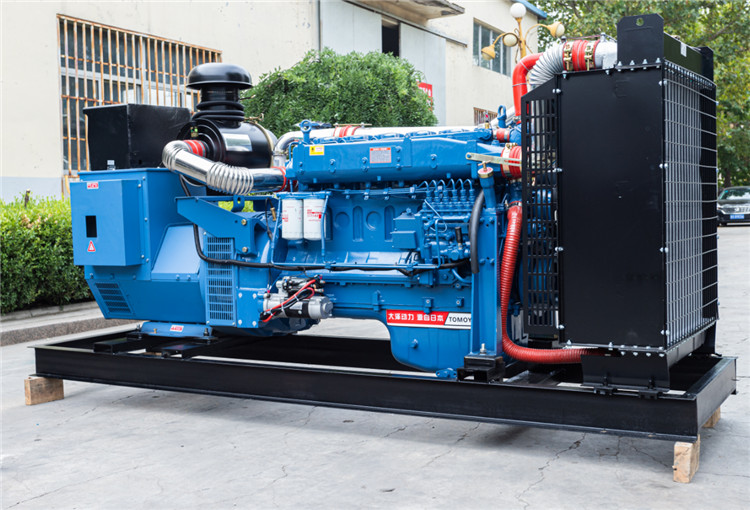Introduction
Diesel generators have long been a popular choice for providing backup power in various settings, including residential, commercial, and industrial applications. One of the key advantages of diesel generators is their fuel efficiency, which makes them a cost-effective and reliable option for ensuring continuous power supply during outages. In this article, we will explore the factors that contribute to the fuel efficiency of diesel generators, the benefits of using diesel generators for maximizing fuel efficiency, and best practices for optimizing fuel consumption.
Factors Affecting Fuel Efficiency in Diesel Generators
1. Engine Design
The design of the diesel engine plays a crucial role in determining the fuel efficiency of a generator. Modern diesel engines are designed to maximize fuel combustion efficiency, reduce friction losses, and improve overall engine performance. Features such as high-pressure fuel injection systems, turbocharging, and advanced engine control systems help optimize fuel consumption and ensure efficient power generation.
2. Load Management
Efficient load management is essential for maximizing fuel efficiency in diesel generators. Running a generator at a partial load or overload can result in inefficient fuel consumption and increased wear and tear on the engine. Properly sizing the generator to match the load requirements and implementing load shedding strategies can help optimize fuel usage and prolong the generator's lifespan.
3. Maintenance and Service
Regular maintenance and servicing are critical for ensuring the optimal performance of a diesel generator. Dirty air filters, clogged fuel injectors, and worn-out components can reduce fuel efficiency and lead to engine malfunctions. By following the manufacturer's recommended maintenance schedule and promptly addressing any issues, users can maintain peak fuel efficiency and reliability in their diesel generators.
Benefits of Using Diesel Generators for Maximizing Fuel Efficiency
1. Cost-Effectiveness
Diesel fuel is generally more cost-effective than gasoline or natural gas, making diesel generators a more economical choice for long-term power generation. With their higher fuel efficiency, diesel generators can generate more power per unit of fuel compared to other types of generators, resulting in lower operating costs and reduced fuel consumption.
2. Reliability
Diesel generators are known for their robustness and reliability, making them a popular choice for critical power applications. The fuel efficiency of diesel generators allows them to run for extended periods without frequent refueling, ensuring continuous power supply during emergencies or prolonged outages. This reliability is especially important for businesses, healthcare facilities, data centers, and other operations that require uninterrupted power.
3. Environmental Impact
While diesel generators are known for their fuel efficiency, they also have environmental implications due to their exhaust emissions. Modern diesel engines are designed to meet stringent emissions standards and incorporate technologies such as exhaust aftertreatment systems to reduce harmful pollutants. By maintaining fuel efficiency and minimizing emissions, diesel generators can help mitigate their environmental impact and comply with regulatory requirements.
Best Practices for Optimizing Fuel Consumption in Diesel Generators
1. Proper Sizing
Selecting the right size of diesel generator based on the expected load requirements is essential for optimizing fuel consumption. An oversized generator may run at a partial load, leading to inefficiencies, while an undersized generator may struggle to meet the demand, resulting in increased fuel consumption and wear on the engine. Conducting a thorough load analysis and consulting with a professional can help determine the optimal generator size for maximum fuel efficiency.
2. Load Sharing and Synchronization
In applications where multiple generators are employed, load sharing and synchronization can help distribute the load evenly among the generators, preventing overload conditions and optimizing fuel consumption. By synchronizing the generators and coordinating their operation through a control system, users can achieve efficient power generation and minimize fuel wastage.
3. Fuel Quality
The quality of diesel fuel used in a generator can significantly impact its fuel efficiency and performance. Using clean, high-quality diesel fuel with the appropriate cetane rating and low sulfur content is essential for optimal combustion and reduced emissions. Regularly monitoring and maintaining the fuel storage tanks, as well as using fuel additives as recommended by the manufacturer, can help ensure consistent fuel quality and maximize fuel efficiency.

4. Monitoring and Control Systems
Implementing advanced monitoring and control systems in diesel generators can enhance fuel efficiency by optimizing engine operation and load management. Features such as automatic voltage regulation, load shedding capabilities, and remote monitoring enable users to track performance metrics, detect inefficiencies, and make real-time adjustments to improve fuel consumption. https://www.lkpowerplant.com/product/1250kva-diesel-generator-price-kw-container-type-diesel-generator-1000kw/ in modern control systems can result in significant fuel savings and improved overall generator performance.
Conclusion
Diesel generators are an efficient and reliable power source for a wide range of applications, thanks to their fuel efficiency and robustness. By understanding the factors that influence fuel consumption in diesel generators, leveraging the benefits of diesel technology, and adopting best practices for optimizing fuel efficiency, users can maximize the performance and cost-effectiveness of their generators. With proper maintenance, load management, and fuel quality control, diesel generators can continue to serve as a dependable backup power solution while minimizing fuel consumption and environmental impact.
